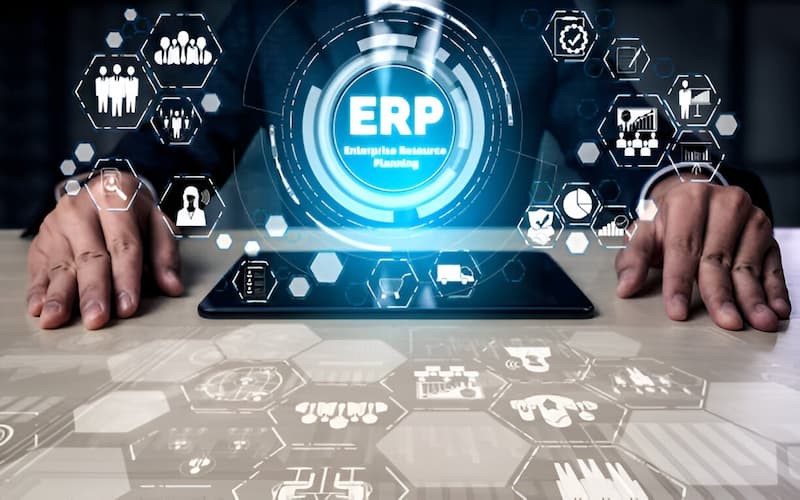Enterprise Resource Planning (ERP) systems have emerged as one of the foundations of the modern businesses, which are not only eager to simplify the processes but to enhance their efficiency and keep ahead of the competition. Being a new person to business software, it may seem overwhelming to know about ERP software but once you decompose it into the base components of the software then it becomes easy. The ERP for dummies is simply one platform that is integrated and unified, bringing the work of many business operations into a single platform that assists organisations to handle finances to the human resources to the supply chain processes. In modern world business, the access to correct and current data is an essential part of the decision-making process.
ERP systems are a central point where all information in a company is gathered, analyzed, and made available to the different departments in the company. Not only does this guarantee the minimization of the risk of errors that are brought about by manual data entry, but also enables businesses to respond swiftly to changes in the market and optimize the workflows and enhance team collaboration. Businesses in Saudi Arabia are moving towards ERP solutions to simplify their operations and products such as Quickdice ERP are sweeping through the market with their versatile nature that is suited to business requirements of the country..
Here are some of the ERPs for beginners: Understanding the Basics of Business Software
What ERP Does
Integrates Business Processes
One of the major functions of an ERP system is to link various business processes in a unified system. Traditional businesses will often have disconnected systems for accounting, procurement, sales and customer management for example, resulting in data silos and inefficiencies. ERP systems address this issue by bringing these functions together so that they can communicate with each other, seamlessly. For instance, a sales order can automatically generate inventory updates, procurement requests and financial entries without any manual intervention. This integration is a major factor as to why businesses are looking towards ERP solutions such as Quickdice ERP for end-to-end management.
Provides a Centralized Data Hub
ERP systems serve as one data warehouse for all business data. This centralization allows every department to be working on the same information, which helps to ensure that information is more accurate and consistent. Data silos, which in many cases cause duplicate data or conflicting reports, are eliminated. Whether it’s tracking inventory, monitoring production schedules, or managing payroll, having a centralized database can ensure that managers and employees have access to up-to-date, accurate information at all times. This is especially helpful for companies operating in Saudi Arabia looking for best ERP software in Saudi Arabia to achieve a complete visibility into operations.
Automates Tasks
Manual processes are time consuming, and error prone. ERP systems automate mundane functions like invoicing, generating purchase orders, payroll processing and reporting. Automation relieves employees from repetitive work and they can concentrate on strategic initiatives and customer-focused work. By reducing the amount of manual work, ERP systems also save on operational costs, improve accuracy and overall productivity.
Enhances Visibility
Another significant benefit of ERP systems is the real time visibility of business processes. This gives managers real-time tracking of the production, logistics, sales and finance and they can make decisions in a short period of time. The visibility also helps in identification of bottlenecks, optimization of the resources assigned as well as prediction of future trends making it easy to remain in business. Options like Quickdice ERP have user friendly dashboards and reporting features that provide an end-to-end perspective of the operations which allows business leaders to retaliate with proactive responses towards issues.
Supports Collaboration
ERP systems facilitate interdepartmental cooperation in the sense that they facilitate access to integrated data by departments. The teams are able to work in tandem on a project, exchange information freely and solve problems more quickly. Better coordination translates to reduced delays and reduced errors and everybody within an organization is speaking with one voice towards a shared purpose. First of all, it is essential to understand that ERP is not merely a software but teamwork tool as well in the case of novices.
How ERP Works
Modular Design
The ERP systems are provided with a modular design whereby each module is specific to only one business process. Examples of common modules are finance, human resource, procurement, inventory management and customer relationship management (CRM). ERP systems are very customizable and scalable since a business can select and decide which modules to adopt based on the needs of the business.
Data Flow
And as one process begins in another module, the ERP system is automatic to update the corresponding modules in real time. An example is, a sales order is placed, which will update the inventory module to show the modifications in the stock, an update in the finance module to show the revenue and a potential trigger in the restocking order as a result of the procurement module. The accuracy that this smooth flow of data is guaranteeing and the absence of manual reconciliation between departments.
Benefits for Businesses
Increased Efficiency
ERP systems assist in the simplification of the working process by automating repetitive activities, and linking different functions. This brings about faster operation and higher productivity. The employees do not waste much time in doing manual processes but make more time to undertake value adding activities such as strategy and interacting with customers.
Reduced Costs
ERP systems lower the cost of doing business by decreasing manual labor, duplicate systems and errors, as well as lowering the cost of operation. Businesses will save administrative costs, wastages and perfect utilization of resources. It could lead to cost savings in the long-term and increased efficiency in operations due to the investment in the solutions like Quickdice ERP.
Improved Decision-Making
ERP systems are a one-stop source for information for managers, giving them accurate and comprehensive information. This enables businesses to make data-driven decisions, anticipate trends, and build strategies that are aligned with organization’s goals. Reliable insights are of particular importance in complex markets such as Saudi Arabia, where businesses must be able to react quickly to shifting demands.
Greater Transparency
ERP systems provide a comprehensive overview of business operations from raw material acquisition to production and sales to shipping. This transparency promotes greater oversight and control, and helps managers identify issues before they become a major problem and keep them in compliance with the regulations.
Scalability
Modern ERP solutions are typically cloud-based and, therefore, flexible and scalable. As business expands, they can add new modules, users, or locations without interrupting existing business. This scalability makes sure that the ERP system is still able to meet evolving business needs over time.
Conclusion
The system may be a difficult concept to just begin with, yet to begin to utilize the full benefits of the system, one needs to be aware of the reason and functionality of the system. ERP systems encompass process integration, data centralisation, process automation, increased visibility and collaboration, which is a treasure trove to contemporary businesses. The selection of the optimal ERP solution is vital, and companies in the Kingdom of Saudi Arabia can effectively use the chance to use Quickdice ERP offering a combination of both thorough and convenient-to-use design tailored to the local needs.
ERP system implementation is not a mere software installation process but it is a transformation of the business operation mode. Efficiency, reduced costs and improved decision making are benefits that companies that adopt ERP solutions enjoy. In the case of novices who are just entering the realm of ERP, research on ERP use like Quickdice ERP, its modular design, the automation capabilities, and centralized data database could form a strong base towards long-term business success. When organizations invest in the best ERP software in Saudi Arabia, they will be guaranteed of a smooth operation in the current competitive and dynamic market



